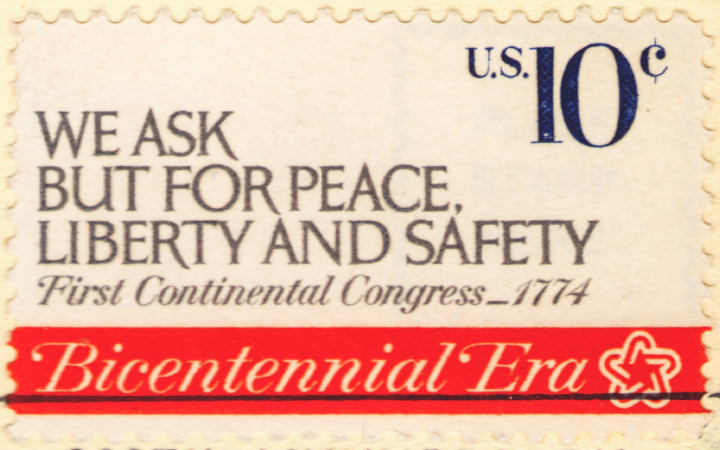Today’s Wonder of the Day was inspired by Elizabeth from Wyoming, MI. Elizabeth Wonders, “What Is The Intolerable Acts?” Thanks for WONDERing with us, Elizabeth!
Have you ever found something intolerable? Perhaps a sibling did something you didn’t like. Maybe you thought an event at school or home was unfair. How did you react? When faced with an intolerable situation, many people look for ways to bring about change.
In 1774, people living in the North American colonies faced such a situation. Tension with England had been rising for years. This led to the 1770 Boston Massacre and 1773 Boston Tea Party. After these events, the British Parliament wanted to tighten the country’s grip on its colonies.
To do so, Parliament passed the 1774 Coercive Acts. These were four new laws meant to punish the colonies for their actions. The laws were very harsh on Boston. That’s where many of the anti-British actions had taken place. In the colonies, these laws became known as the Intolerable Acts.
What four laws made up the Intolerable Acts? The first was the Boston Port Bill. This closed Boston Harbor. The bill was a direct response to the Boston Tea Party. It punished the city for the destroyed tea. It did so by stopping trade, fishing, and all other traffic from accessing the harbor.
Second, Parliament passed the Massachusetts Government Act. This changed the Massachusetts charter. It made town meetings illegal. It got rid of the elected local council and set up a new one. This law also increased the powers of the colony’s military governor.
The third piece of the Intolerable Acts was the Administration of Justice Act. This law said people charged with a crime could be tried in other colonies or in London. It had the effect of protecting British officials charged for crimes in the colonies.
Finally, Britain also passed the Quartering Act. It said British soldiers could be housed in private buildings. That meant that governors could lay claim to property owned by colonists. Then, they could let British soldiers live there.
Parliament hoped the new laws would bring the colonies under control. However, they had the opposite effect. Pushback against the acts led to the First Continental Congress.
The First Continental Congress met in Philadelphia. It brought together leaders from across the colonies. In October 1774, it issued the Declaration of Colonial Rights and Grievances. This argued that Parliament did not have the right to tax the colonies. It also spoke against the Intolerable Acts as an attempt to limit liberty. Finally, it called on the colonies to build up their militias.
The Intolerable Acts and First Continental Congress were big steps on the road to the American Revolution. How would you have responded to the Intolerable Acts? Would you have accepted the new laws? Maybe you would have been part of the First Continental Congress instead. Either way, these laws hold an important place in history. Without the events that followed, the U.S. as we know it may never have been.
Standards: C3.D2.His.2, C3.D2.Civ.4, C3.D2.Civ.8, C3.D2.Civ.12, C3.D2.Civ.13, C3.D2.Civ.14, CCRA.L.3, CCRA.L.6, CCRA.R.1, CCRA.R.2, CCRA.R.4, CCRA.R.10, CCRA.SL.1, CCRA.SL.2, CCRA.W.1, CCRA.W.9, CCRA.L.1, CCRA.L.2, NCAS.A.1, NCAS.A.2, NCAS.A.3, NCAS.A.10, NCAS.A.11




